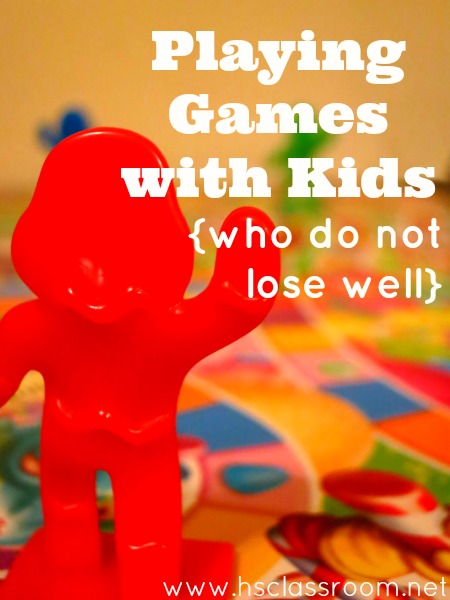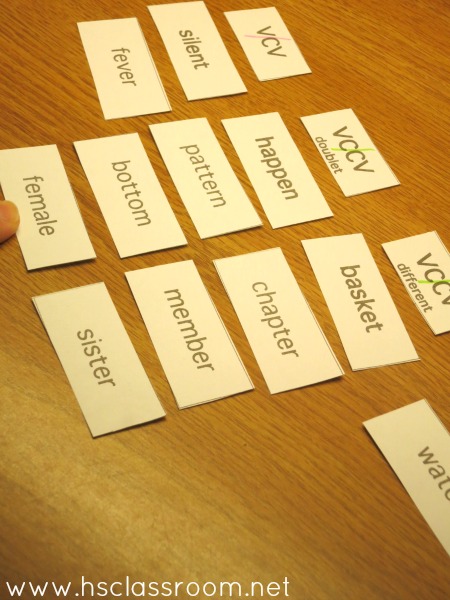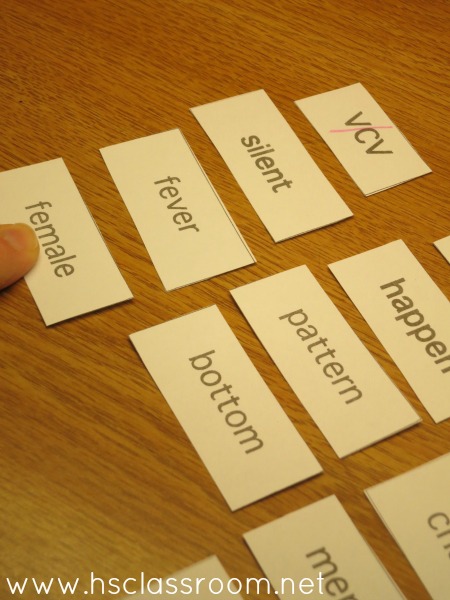advertisement
The following post is from Becky of This Reading Mama:
advertisement
*This post contains affiliate links.
Playing games with kids is such a hands-on and fun way to teach new strategies and review skills. And it’s such a sneaky way to do it, too.
But playing games with one particular child in our family hasn’t always been so fun. If he didn’t win the game, everyone around him was (and sometimes still is) subject to his bad mood. I had gotten to the point of finding ways to let him win so I did not have to hear his whining and crying.
But then I realized I was doing him a huge disservice by letting him win at every game. I was not teaching him how to lose well. Life isn’t always about winning. To be honest, it seldom is.
I still wanted to play games with my little guy, so I began to brainstorm some ideas for games we could play together.
Play Games Based on “Luck”
If I played my son in Guess Who?, of course I was going to win every time. I am more skilled in that game than he. I began to search for games based more on “luck.” Games like Candyland or games with dice. I even created a spelling game he could play with his brother to practice spelling words without any skill needed. They play this one quite often.
Notice, there is still a clear winner with these games. The difference is everyone who plays has the potential of winning because it is not always the most skilled player who wins.
Play Catch My Mistake
When the game requires skills (like reading words or working math problems), I developed a game I call Catch My Mistake. It not only makes the game a little more fun, but it keeps my son engaged when it’s my turn, a huge plus. This is how we played it with his most recent word-sort from Words Their Way.
For this game, we take turns sorting words by their patterns. I read a word and sort it and he does, too. If the word is read correctly, the player earns a point. If the word is also sorted correctly, the player receives another point. Players each have the potential of earning two points on their turn.
But here’s the “catch”–if a player reads the word incorrectly or sorts it incorrectly, the other player has the opportunity to “catch” the mistake. If the other player is able to catch the mistake(s), he gets the point(s) instead. When I explain the rules, I tell my son, “I am going to make some mistakes on purpose just to see if you can catch them. If you do, you get my points.” In the photos above, I am sorting female in the wrong spot, based on the pattern. He is re-sorting the word in the correct column to gain the point.
Teach Strategies Along the Way
Yes, I do want my son to learn to lose well. And there are days (insert MANY days) we discuss attitude before we start playing together because I know I’ll probably beat him.
But there are also those days we play with an open hand. He sees the cards I have and I see his. We talk about strategy. Why did I play this card at this time? What could I have done instead? How did I just take the knowledge we talked about in science to help me answer that question? He learns how to apply those new strategies and skills from his content areas of school into the game in an effective way, the goal of playing games in the first place!
What are some ways you have taught your own kids to “lose well?”
 |
Becky Spence is a homeschooling mama to four little blessings who keep her on her feet {and knees}. She is passionate about teaching, specifically literacy. She is the author of This Reading Mama, where she shares reading and writing activities and tips as well as free literacy curricula and printables. You can connect with her on Google +, Pinterest, Facebook, and Twitter. |
Join 40,000+ Other Awesome People
Subscribe to the Real Life at Home weekly newsletter to get our latest content, exclusive free printables, learning activities, and ideas for celebrating with your kids all year



Thank you so much for this very helpful post. I too have a child, our only, who is a poor loser. I appreciate your suggestions and look forward to trying them out!
My son who is 7 does not like to lose either. The above are good strategies but I find telling him straight out that if he is not a graceful loser then others won’t want to play with him. This seems to snap him into shape.